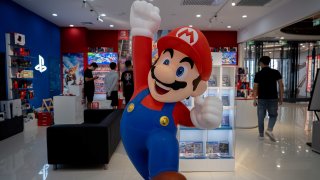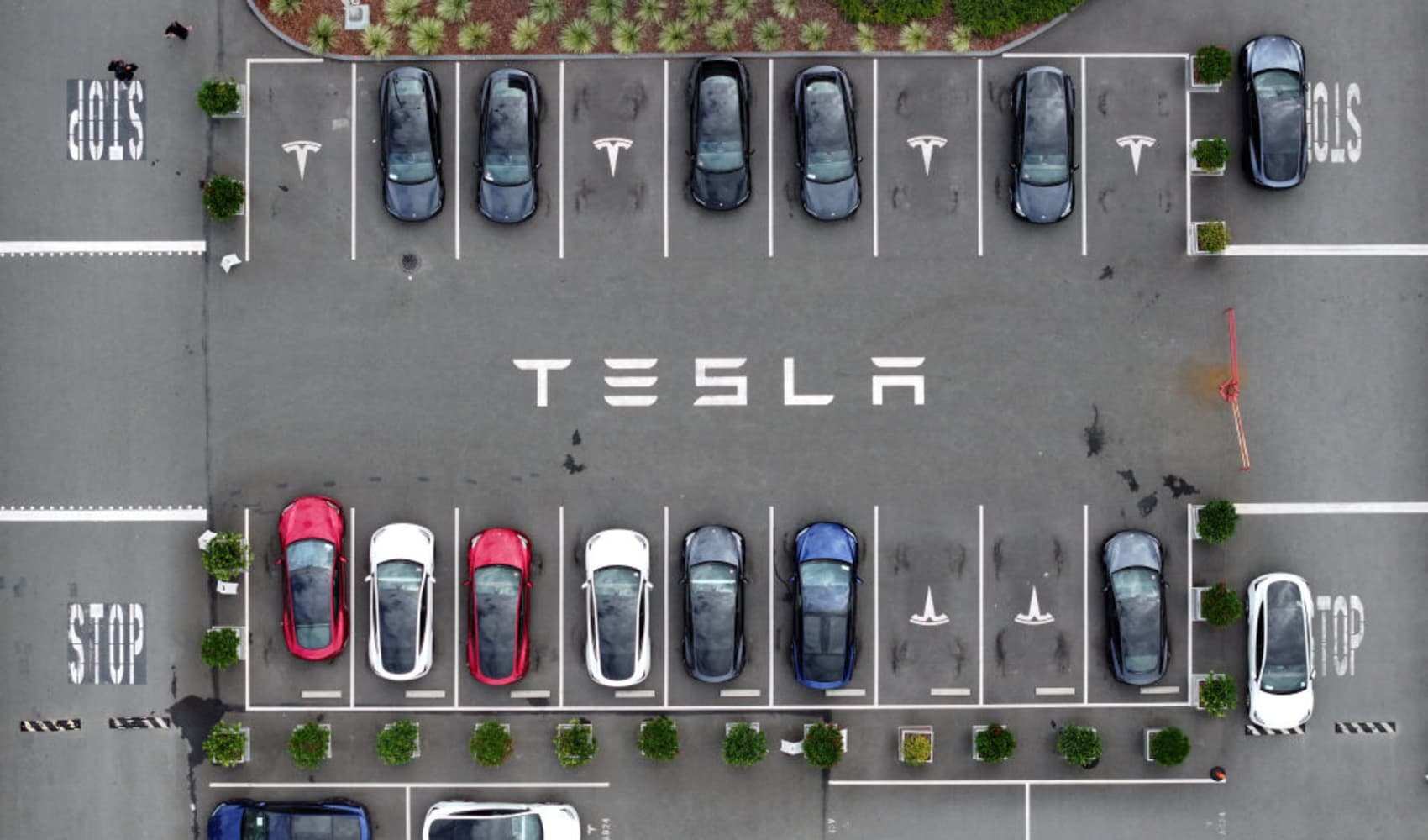
- Nintendo has sold 103.54 million units of the Switch since its release in early 2017. In comparison, the company has sold 101.63 million units of the Wii since its release in 2006.
- It's a big milestone for the Switch, as the Wii was one of Nintendo's most popular consoles.
- Nintendo, like many other consumer electronics companies, has been grappling with a shortage of components, in particular semiconductors which power its devices.
Sales of the Nintendo Switch console have surpassed the Wii, but the global semiconductor shortage forced the Japanese gaming giant to cut its forecast for the device.
Nintendo has sold 103.54 million units of the Switch since its release in early 2017 — that's just above the 101.63 million units of the Wii sold since its release in 2006. The company no longer produces the Wii.
It's a big milestone for the Switch, as the Wii was one of Nintendo's most popular consoles. The Switch still trails sales of the original handheld Gameboy and later generation Nintendo DS, however.
Get a weekly recap of the latest San Francisco Bay Area housing news. Sign up for NBC Bay Area’s Housing Deconstructed newsletter.
On Thursday, the company said that in the nine months to the end of December, it sold 18.95 million units of the Switch, which includes the handheld Switch Lite. That marks a 21.4% year-on-year fall.
It added that it now expects to sell 23 million units of the Switch in its fiscal year which runs to the end of March, down from a previous forecast of 24 million.
Nintendo, like many other consumer electronics companies, has been grappling with a shortage of components, in particular semiconductors which power its devices.
Money Report
"The outlook for semiconductors and other components has remained uncertain since the start of this fiscal year and distribution delays remain unresolved, so production and logistics continue to be impacted," Nintendo said in a statement on Thursday.
A lack of semiconductors means Nintendo can't produce enough consoles to meet demand for the Switch.
The cut comes after Sony on Wednesday slashed its full-year PlayStation 5 sales forecast from 14.8 million units to 11.5 million.
Digital boost
For the December quarter, Nintendo reported revenue of 695.94 billion yen ($6.06 billion), a 9.6% year-on-year rise. Operating profit rose nearly 10% year-on-year to 252.6 billion yen.
Despite Switch hardware sales falling, users are still buying games online which is heling to prop up revenue and profit, however.
Digital sales, which includes downloads of games and add-on content, totaled 110.8 billion yen in the December quarter, up 31% versus the same period last year. That was driven by success of Nintendo's first party games including Pokemon Brilliant Diamond, Pokemon Shining Pearl and Mario Kart 8 Deluxe.
Last month, Nintendo released a new game called Pokémon Legends: Arceus with further high-profile titles scheduled for later this year.
Strong software sales prompted the Japanese gaming giant to revise up its forecasts for the financial year ending March 2022. Nintendo now expects operating profit of 560 billion yen, up from a previous forecast of 520 billion yen.
The company also expects sales of Nintendo Switch software to be 220 million units up from the previous forecast of 200 million units.
Acquisitions?
Nintendo's earnings follow high-profile acquisitions from its two closest rivals. Microsoft proposed a $68.7 billion takeover of Call of Duty maker Activision last month. Just days later, Sony agreed to acquire developer Bungie for $3.6 billion.
Sony and Microsoft have looked to build up their intellectual property over the past few years and boost the number of self-developed titles they have on offer. Nintendo has been less aggressive in acquisitions because it has a long-standing history of strong characters and games such as Pokemon and Mario.
Nintendo President Shuntaro Furukawa said at a press conference that the company is not against deals, Reuters reported, but added: "It wouldn't be a plus to suddenly bring in people who don't have Nintendo's way of thinking."
Daniel Ahmad, senior analyst at Niko Partners, said that Nintendo is "extremely selective" about its investments, pointing toward its acquisition of Next Level Games last year. The studio already makes games for Nintendo.
"If Nintendo was to ramp up M&A [mergers and acquisitions] in the future, we would expect them to focus on companies where they already have a strong working relationship," Ahmad said.






